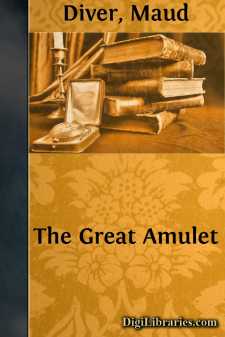Fiction
- Action & Adventure 180
- Biographical 15
- Christian 59
- Classics 6965
- Coming of Age 5
- Contemporary Women 3
- Erotica 8
- Espionage/Intrigue 12
- Fairy Tales, Folklore & Mythology 236
- Family Life 169
- Fantasy 117
- Gay 1
- General 596
- Ghost 32
- Historical
- Horror 43
- Humorous 160
- Jewish 25
- Legal 4
- Medical 22
- Mystery & Detective 315
- Political 49
- Psychological 41
- Religious 64
- Romance 159
- Sagas 11
- Science Fiction 730
- Sea Stories 113
- Short Stories (single author) 537
- Sports 10
- Suspense 1
- Technological 8
- Thrillers 2
- Urban Life 31
- Visionary & Metaphysical 1
- War & Military 173
- Westerns 199
Historical Books
Sort by:
by:
Wilkie Collins
CHAPTER I FOR reasons of my own, I excused myself from accompanying my stepmother to a dinner-party given in our neighborhood. In my present humor, I preferred being alone—and, as a means of getting through my idle time, I was quite content to be occupied in catching insects. Provided with a brush and a mixture of rum and treacle, I went into Fordwitch Wood to set the snare, familiar to hunters of...
more...
by:
Israel Zangwill
I They both styled themselves "Madame," but only the younger of the old ladies had been married. Madame Valière was still a demoiselle, but as she drew towards sixty it had seemed more convenable to possess a mature label. Certainly Madame Dépine had no visible matrimonial advantages over her fellow-lodger at the Hôtel des Tourterelles, though in the symmetrical cemetery of Montparnasse...
more...
by:
Maud Diver
THE GREAT AMULET. PROLOGUE. I. "The little more, and how much it is! The little less, and what worlds away." —Browning. No one in Zermatt dreamed that a wedding had been solemnised in the English church on that September afternoon of the early eighties. Tourists and townsfolk alike had been cheated of a legitimate thrill of interest and speculation. Nor would even...
more...
CHAPTER I THE POLKINGTONS The Polkingtons were of those people who do not dine. They lunched, though few besides Johnny Gillat, who did not count, had been invited to share that meal with them. They took tea, the daintiest, pleasantest, most charming of teas, as the élite of Marbridge knew; everybody—or, rather, a selection of everybody, had had tea with them one time or another. After that there...
more...
by:
William Kirby
CHAPTER I. MEN OF THE OLD RÉGIME. "'See Naples, and then die!' That was a proud saying, Count, which we used to hear as we cruised under lateen sails about the glorious bay that reflects from its waters the fires of Vesuvius. We believed the boast then, Count. But I say now, 'See Quebec, and live forever!' Eternity would be too short to weary me of this lovely scene—this...
more...
by:
Emily Sarah Holt
Jenny prepares to go a-journeying. “Jenny, my dear maid, thou wilt never fetch white meal out of a sack of sea-coal.” Jenny tossed her head. It would have been a nice little brown head, if it had not been quite so fond of tossing itself. But Jenny was just sixteen, and laboured under a delusion which besets young folks of that age—namely, that half the brains in the world had got into her head,...
more...
by:
Anatole France
variste Gamelin, painter, pupil of David, member of the Section du Pont-Neuf, formerly Section Henri IV, had betaken himself at an early hour in the morning to the old church of the Barnabites, which for three years, since 21st May 1790, had served as meeting-place for the General Assembly of the Section. The church stood in a narrow, gloomy square, not far from the gates of the Palais de Justice. On...
more...
THE MAY-DAY QUEEN This is the book of Lappo Lappi, called by his friends the careless, the happy-go-lucky, the devil-may-take-it, the God-knows-what. Called by his enemies drinker, swinker, tumbler, tinker, swiver. Called by many women that liked him pretty fellow, witty fellow, light fellow, bright fellow, bad fellow, mad fellow, and the like. Called by some women who once loved him Lapinello,...
more...
by:
Emerson Hough
CHAPTER I THE BRAZEN TONGUES The band major was a poet. His name is lost to history, but it deserves a place among the titles of the great. Only in the soul of a poet, a great man, could there have been conceived that thought by which the music of triumph should pass the little pinnacle of human exultation, and reach the higher plane of human sympathy. Forty black horses, keeping step; forty...
more...











